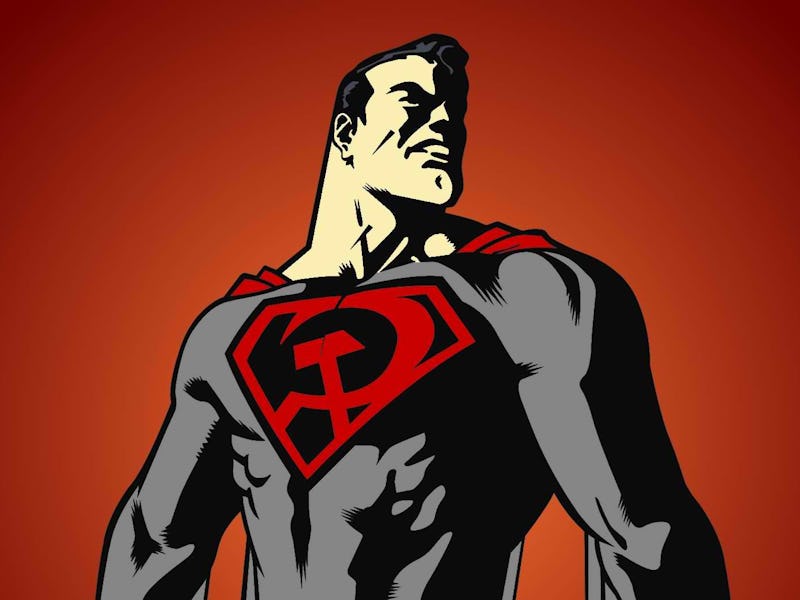What 'BvS' Could've Learned From 'Superman: Red Son'
'BvS' may have borrowed from all the wrong places.

We’re running out of cute ways to say Batman v Superman was bad. I could mention that it was narratively messy. I could say that it felt like a war crime against the culture it pillages for money. I could mention that we’re probably going to get a re-released, three-hour cut of the film that no one in the universe asked for.
Rather, I think I’d like to bring up that it was so off-putting, it forced me to go immediately cleanse my palate with good comic books. I’m not sure if anyone else in the world left that bad theater experience and went home to spend more time with Bats and Supes, but I did. One thing I finally knocked out after years of putting it off was the three issue arc Superman: Red Son by Mark Millar.
If you’ve never checked it out before:
In Red Son, Superman’s rocket ship lands on a Ukrainian collective farm rather than in Kansas, an implied reason being a small time difference (a handful of hours) from the original timeline, meaning Earth’s rotation placed Ukraine in the ship’s path instead of Kansas. Instead of fighting for “… truth, justice, and the American Way”, Superman is described in Soviet radio broadcasts “… as the Champion of the common worker who fights a never-ending battle for Stalin, socialism, and the international expansion of the Warsaw Pact.” His “secret identity” (i.e. the name his adoptive parents gave him) is a state secret.
From here, Super-Kremlin goes about defending the interests of socialism around the world, while U.S. super-genius Lex Luthor (married to Lois Lane-Luthor) devises ways to prevent the conquering of the American mainland. He’s… the hero, you see. Lex Luthor. It’s what we call “a twist.” Luthor is also maddeningly annoying — he’s also a rarely shown hyper-kinect version of himself that seems more Doctor Manhattan from Watchmen than standard issue Luthor.
It starts pretty kitschy, and then it really grows on you.
I think the best thing it gave me, post-BvS, was an example of Superman believing in something and standing for it, even if that thing is what the reader is lead to believe might be wrong — to quote Lebowski: “at least it’s an ethos!”
Among all of the twists and turns in this modern-reversal fable is the way Batman comes into play, as a result of an over-zealous police murder which inspires him to stand against Superman and become this capitalist ghost. Within their back and forth, Batman actually winds up blowing himself up. On purpose.
When Batman falls, it is what he stands for that continues to live and inspire a revolution. It is the very idea that all three of the Nolan trilogy films were based upon; Batman as symbol outshines Batman as man.
At its heart, while Red Son is a silly but clever premise, it nails two major characters and two strong ideologies, whereas BvS is sort of hard to summarize? “It was about… punching, I suppose?*
So I’m back to the comics. I want more experiences like this. And less of whatever that two-and-a-half-hour other thing became.
Check out the entire motion comic here: